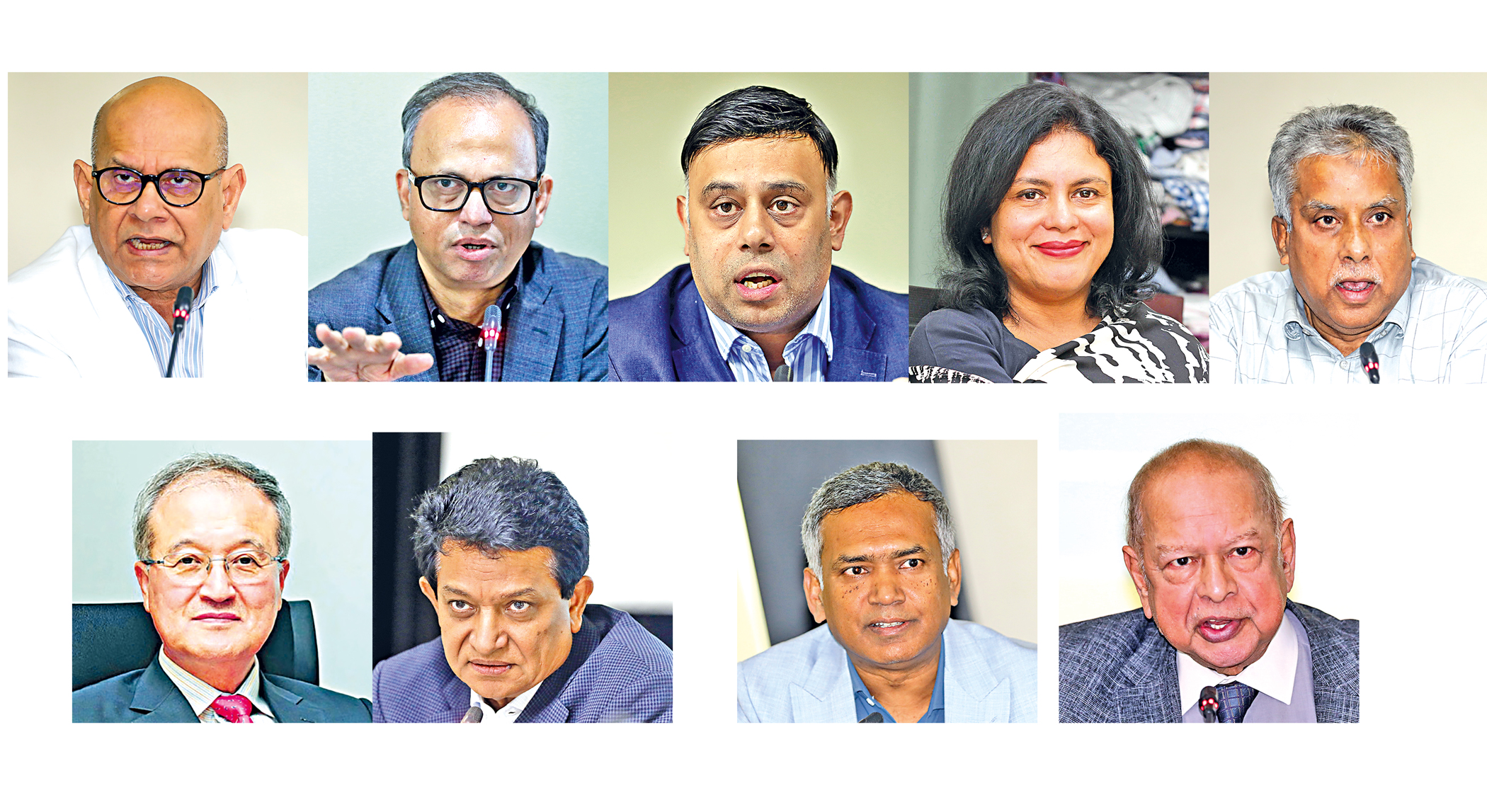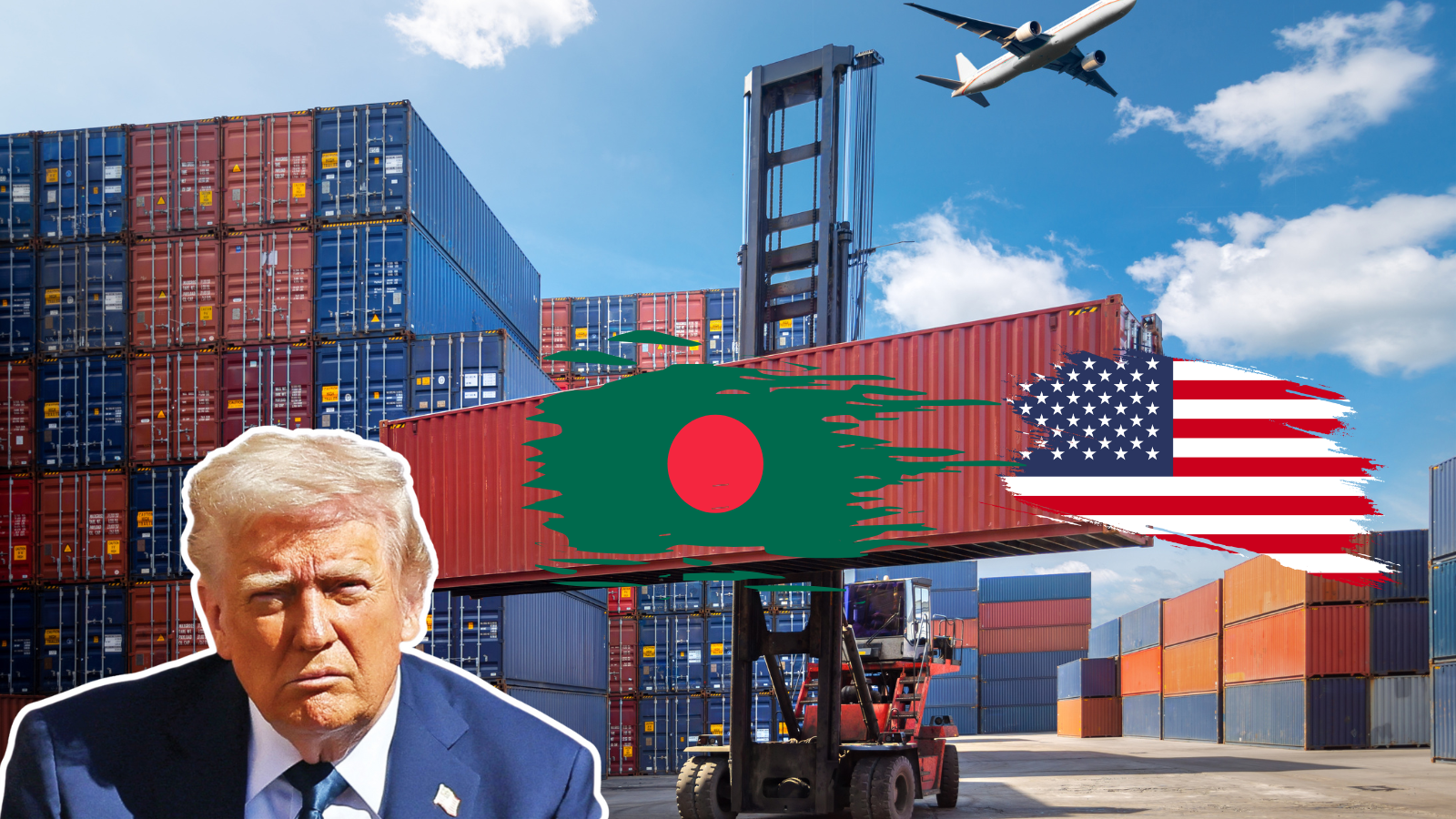Govt plans to include private sector in US tariff talks

The government is considering bringing private sector representatives on board for upcoming tariff negotiations with the United States, as Bangladesh prepares to respond to the proposed tariff schedules by Sunday or Monday next week.
The US Trade Representative (USTR), which leads trade talks for Washington, has already sent Bangladesh three detailed tariff schedules.
Bangladesh is currently reviewing the proposals and will send a response within the next couple of days, Commerce Secretary Mahbubur Rahman told The Daily Star yesterday over the phone.
"As the tariff issue includes multiple ministries, the commerce ministry has called an inter-ministerial meeting on Saturday to approve the agreed tariff lines submitted by the USTR," he said.
Rahman added that Bangladesh had agreed on most of the tariff issues but declined to elaborate, citing the non-disclosure agreement (NDA) signed by both sides before the talks began.
He also refrained from commenting on non-tariff matters that had been discussed, saying they too fall under the NDA.
However, the secretary said the ministry plans to involve private sector stakeholders in the negotiations. "We will be reaching out to business leaders from leading chambers and trade bodies," he said.
The commerce secretary did not disclose how many products the US had sought to be granted zero-duty access to the Bangladeshi market, but mentioned that the number is far lower than Bangladesh's total list of 7,446 tariff line items.
No new date has yet been set for the third round of talks, which is scheduled to take place in Washington before August 1, when the new import duties imposed by the Trump administration are due to take effect.
The commerce secretary said he would formally request the USTR to set a fresh date for the talks after Saturday's inter-ministerial meeting finalises Bangladesh's position on the zero-duty proposals.
Earlier this week, after returning from the second round of talks in the US, Commerce Adviser Sk Bashir Uddin and Mahbubur Rahman told a press conference that Bangladesh was preparing for the third round and that a team would fly to Washington next week.
However, the names of the delegation members have not yet been made public.
Meanwhile, economists and exporters are warning of serious repercussions for Bangladesh's economy due to the Trump administration's additional 35 percent reciprocal tariff on Bangladeshi goods.
They predict that overall US apparel imports could fall from nearly $80 billion last year to between $65 billion and $70 billion this year, as higher tariffs discourage sourcing from affected countries.
This could spell trouble for Bangladesh, especially its garment exports to the US, which may take a hit as American retailers and brands scale back their imports due to the steeper costs.
In contrast, the country's market competitors like Vietnam, India, and Indonesia have been hit with much lower rates, which may affect Bangladesh's garment share in the American market.
Bangladesh currently holds a 9.2 percent share of the US apparel market, making it the third-largest supplier after China and Vietnam. Last year, the country exported $8.2 billion worth of garments to the US.
Shovon Islam, managing director of Sparrow Group, which exports $350 million worth of garments a year—$150 million of which goes to the US—said his American buyers are already pressing him to cut prices, even though the final tariff rate is yet to be confirmed.
He said that he had to offer much lower prices to secure an order of one million shirts, as the buyer was considering shifting it to India, where tariffs are lower.
"Multinational clothing brands are also negotiating prices for goods meant for other markets like India and Japan, even though Bangladesh enjoys duty-free access there," Islam said.
"They think production in India is more cost-effective than in Bangladesh because of the lower tariff imposed on India by the Trump administration," he added. "I am deeply disappointed with the lack of progress demonstrated by the Bangladesh government."
"As a stakeholder and one of the largest exporters to the US market, I feel utterly helpless and frustrated," Islam commented.
Fazlee Shamim Ehsan, executive president of the Bangladesh Knitwear Manufacturers and Exporters Association (BKMEA), said the commerce ministry had not yet communicated with them about including private sector representatives in the talks.
"Maybe the ministry will contact us later," he told The Daily Star yesterday.




 For all latest news, follow The Daily Star's Google News channel.
For all latest news, follow The Daily Star's Google News channel. 


Comments